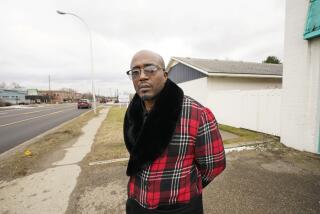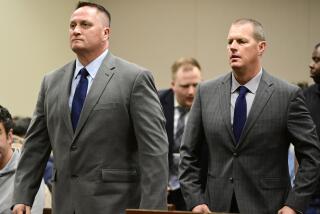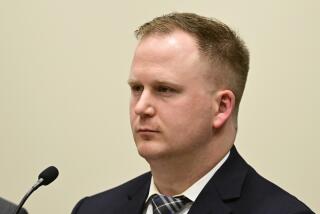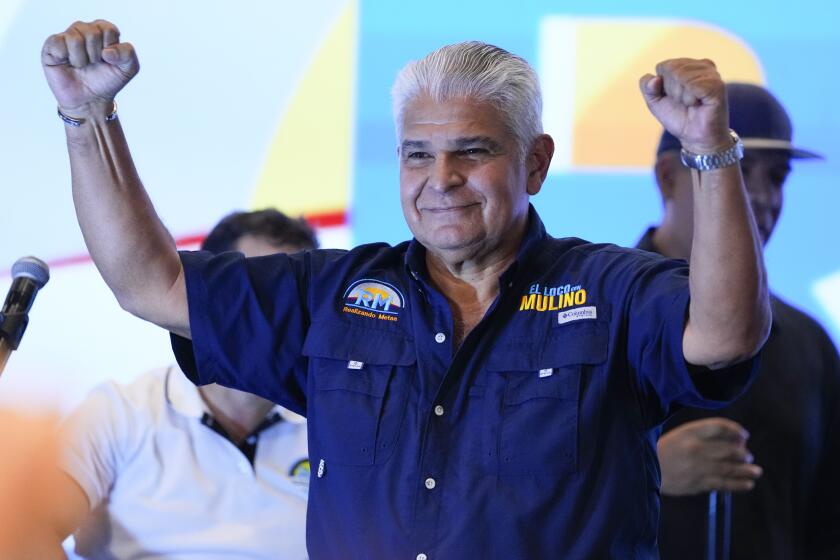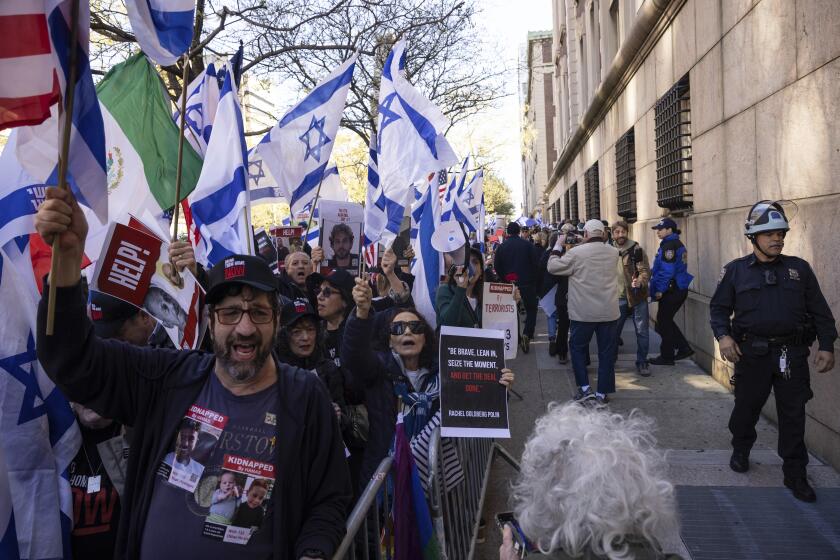Analysis: How Baltimore’s prompt prosecution of police in death of Freddie Gray might backfire
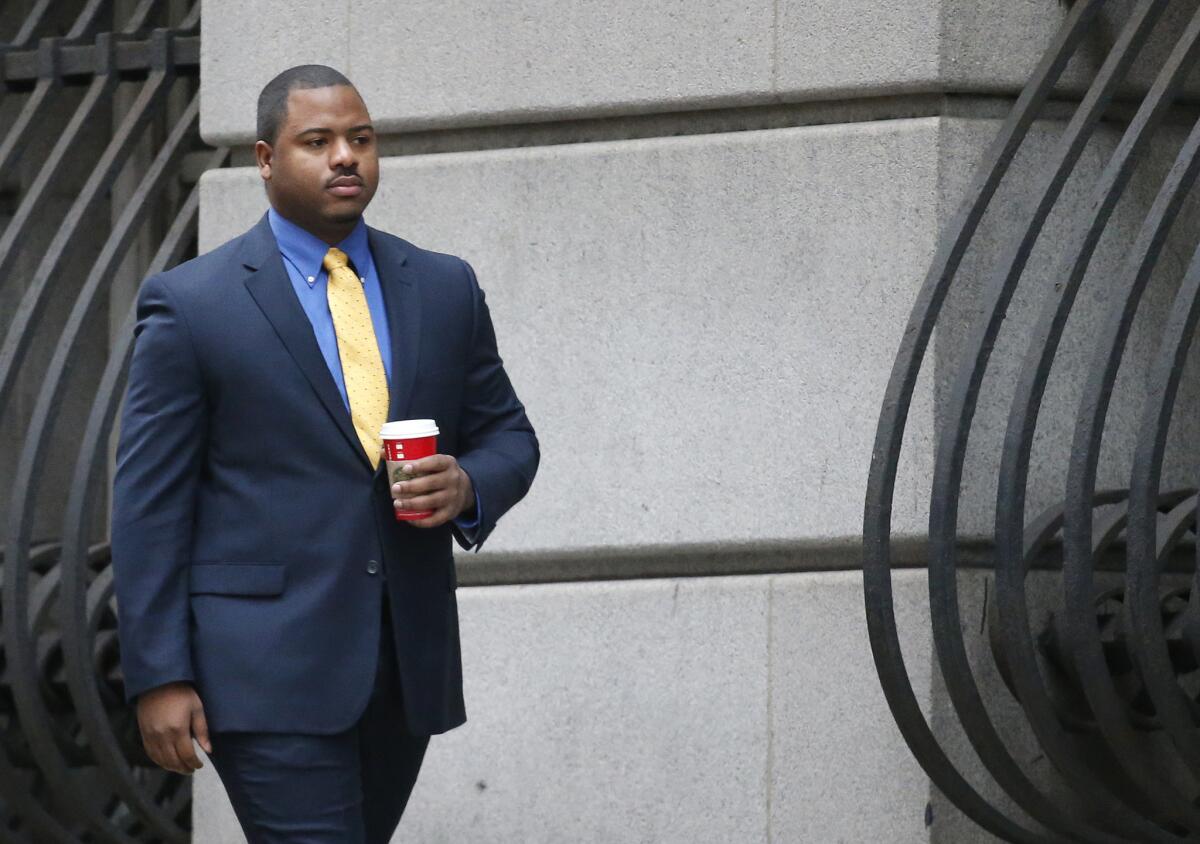
William Porter, one of six Baltimore police officers charged in connection with the death of Freddie Gray, arrives at the courthouse on Nov. 30.
After a Chicago policeman shot to death 17-year-old Laquan McDonald, authorities waited 13 months to open a formal probe. In Ferguson, Mo., it took a local prosecutor three months -- and federal investigators six -- to decide not to charge police officer Darren Wilson in the death of Michael Brown.
Eager to avoid the growing public backlash over what some see as legal foot-dragging in cases involving deadly police shootings, officials in Baltimore moved much more aggressively after Freddie Gray died of injuries apparently sustained in the back of a police van. Two weeks after Gray’s death, Marilyn Mosby, the state’s attorney for Baltimore, charged six officers, including four accused of murder or manslaughter.
The quick, serious charges surprised defense attorneys as well as police investigators, who were still probing the incident. The city’s African American community cheered the decisive move.
NEWSLETTER: Get the day’s top headlines from Times Editor Davan Maharaj >>
But as the jury began deliberations Monday over the fate of William G. Porter, the first of the Baltimore officers to face trial, the wisdom of that prompt action is now being debated in a city where officials are openly fearful that an acquittal could spark renewed rioting.
Following the two-week trial, some legal experts have criticized the prosecution’s handling of the difficult case, predicting that an acquittal or a conviction on only a misdemeanor charge are real possibilities.
“If there’s an acquittal, a lot of people will be scratching their heads over the prosecution of a very weak case that never should have been brought,” said Steven H. Levin, a former federal prosecutor in Baltimore. “They will say we saw what happens when people bend to pressure.”
Observers say the prosecution offered little new evidence to bolster what was always going to be a hard case to prove, particularly against a police officer. Prosecutors are asking jurors to find Porter negligent for not strapping Gray into a seat belt and not calling for medical help when he appeared to be in distress following the van ride to the police station. Porter is also charged with three misdemeanors, second-degree assault, misconduct in office and reckless endangerment.
See the most-read stories this hour >>
“I think this was a really difficult case for the state’s attorney to prove,” said David Jaros, who teaches criminal law at the University of Baltimore. “It is not easy to prove criminal liability based on an omission.… To convict him of involuntary manslaughter, they have to persuade the jury that not only did Officer Porter fail to do his duty, they have to show that Porter was aware he was putting Freddie Gray at a high risk of dying.”
Gray died of a spinal cord injury that occurred while he was in police custody after being arrested April 19 for possessing what police said was an illegal switchblade.
Porter’s defense attorney poked holes in the prosecutors’ assertion, analysts say. Timothy Longo, the police chief in Charlottesville, Va., and a former Baltimore police colonel, testified that Porter’s actions were reasonable. A neurosurgeon testified that Gray’s injuries were “catastrophic” and would have led to an immediate death, which would mean he was injured after Porter last checked on him, contravening the prosecution’s theory of when the fatal blow occurred.
In a sign of how badly the case was going for the prosecution, two policemen who were granted immunity to testify against Porter were called instead by the defense, and gave what appeared to be damaging testimony about the department’s practice of not using seat belts on prisoners.
An acquittal, or even a conviction that leads to no jail time, could also jeopardize the upcoming trials of five other officers charged in Gray’s death. Prosecutors have made clear they are counting on Porter’s testimony in at least some of those cases, testimony he will have little incentive to give if he is not facing jail time.
City officials are clearly worried that an acquittal on all charges or on the most serious charge of involuntary manslaughter could lead to a repeat of the rioting that rocked the city in April.
Last week Mayor Stephanie Rawlings-Blake appealed to her constituents to stay calm no matter the result. “We need everyone in our city to respect the judicial process,” Rawlings-Blake said.
Jaros, the University of Baltimore professor, said even if the prosecution loses, the city’s prompt action proved to skeptics that local governments can take their grievances against police seriously.
“Simply because it is difficult to prove doesn’t mean a case shouldn’t be brought,” he said.
Twitter: @timphelpsLAT
ALSO
Sgt. Bowe Bergdahl to face desertion charge in general court-martial
Donald Trump’s proposed ban on Muslim immigrants could be legal, scholars say
$5.7-million verdict against 2 LAPD officers will stand, Supreme Court rules
More to Read
Start your day right
Sign up for Essential California for news, features and recommendations from the L.A. Times and beyond in your inbox six days a week.
You may occasionally receive promotional content from the Los Angeles Times.
